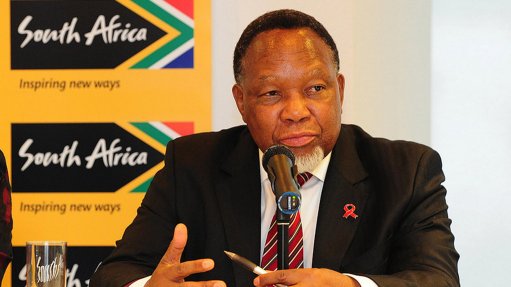
Kgalema Motlanthe
Former president Kgalema Motlanthe questioned whether South Africa should accumulate more debt at the cost of the indigent and future generations, with debt servicing having risen to R128-billion a year.
He posed this question during his keynote address at the tenth yearly Electoral Institute for Sustainable Democracy in Africa’s, or Eisa’s, symposium, held in Johannesburg on Wednesday.
He addressed international delegates on using “constitutions as pathways to peace, stability, democracy and development” and focused on South Africa’s progress regarding the use of its Constitution as a tool for democracy.
In realising that South Africa’s constitutionally guaranteed and foreseeable socioeconomic rights depended, in many instances, on the availability of State resources, Motlanthe said, “we may wish to ask ourselves where the money will come from”.
Meanwhile, he also highlighted the strides made in granting all South Africans rights under the Constitution post-apartheid.
“I have no doubt that the symposium will enable us [to use it as an] opportunity to reflect honestly and dispassionately on and draw lessons from the post-independence experiences under many African constitutions,” Motlanthe said.
He noted that race had long since ceased to be a basic requirement of citizenship in South Africa, adding that there was one common South African citizenship and no person could be denied citizenship by any person or authority.
“When we [drew up] the Constitution, we readily accepted that enforceable economic, social and cultural rights were the key to effectively realising human rights in post-apartheid South Africa. Without such rights, we were never going to be able to ameliorate the living conditions of the masses of our people.”
Civil and political rights, in the context of debilitating social and economic conditions, were never going to enable the new polity to address the mandate of alleviating the plight of the victims of colonial and apartheid oppression and neglect, he added.
Meanwhile, Motlanthe said that, to ensure that South Africa’s post-1990 political models did not degenerate and morph into a dictatorship, as a result of government’s noncompliance with court orders and the law, the country relied on Chapter 9 institutions.
These institutions support and strengthen the country’s constitutional democracy, are not subject to national executive control and are not organs of State within any sphere of government.
Chapter 9 institutions should have financial independence – having access to funds necessary and reasonably required to enable them to discharge their functions under the Constitution and the law – and administrative independence – not being subjected to external control in respect of those matters directly connected to the functions they perform under the Constitution and the law.
“For the purposes of this symposium, our attention is focused on the first one . . . the office of the Public Protector – the institution that was established . . . to answer the crucial question . . . posed by the Roman poet Juvenal: ‘Who will guard the guards?’,” said Motlanthe.
The Constitution set high ethical and professional standards when exercising public power; imposed an obligation on the State to ensure accountability, responsiveness and openness in government; and demanded that budgetary and expenditure processes were underpinned by transparency, accountability and effective management of the economy. It was fair to accept that such values were not adhered to at all times by all holders of power, he stated.
Even optimists were obliged to acknowledge that there was a gap between the constitutional promise of a society in which every person was treated equally and the reality of experiences of the masses of the people.